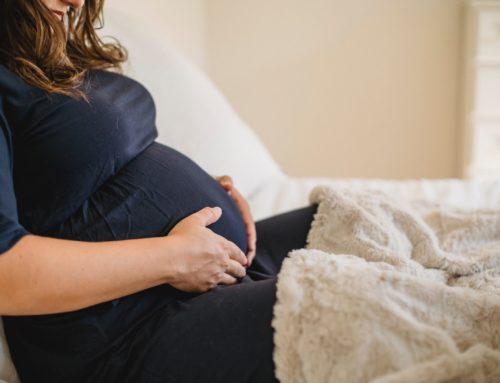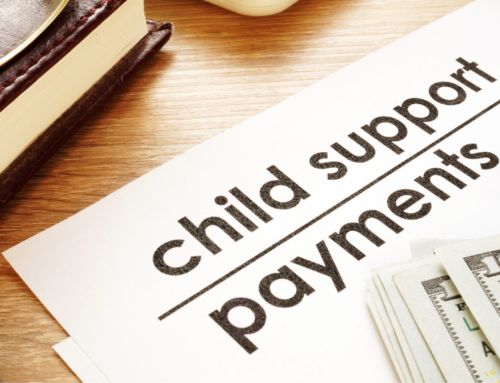The coronavirus relief bill signed into law on March 27, 2020 (the CARES ACT) provided economic impact payments, or “stimulus checks” to qualifying American households. Some people received the checks in the mail, others by direct deposit, and some received the stimulus through a pre-paid debit card. In a divorced family with children, you may be wondering how these stimulus payments should be allocated in terms of child support or allocation of the children’s stimulus payments.
The basics of the CARES ACT stated that every non-dependent adult receive $1,200 per adult and $500 per child if you make less than $75,000 as an individual. If you are an individual filing as head of household and earning less than $112,000, you receive $1,200. If you were married and filed your taxes jointly in 2018 or 2019 and earn less than $150,000 combined, you receive $2,400. If you make over $150,000 combined, your stimulus is decreased by $50 for every $1,000 you make over that threshold. The second and third stimulus payments are $600 and $1,400, respectively.
The $500 per child bonus was received by the parent who claimed the child on the tax return being used to qualify you for these payments. For example, if you have filed for divorce today but in 2019 your spouse claimed the kids on joint tax returns, they received the $500 payment, even if you were the custodial parent. This is a tricky issue. The IRS advises that they follow the allocation of the children in your tax returns for the $500 child bonus in terms of whose account it is deposited into.
$500 Per Child Bonus:
If the parent who received the $500 child bonus is not the custodial parent, a judge may decide that the custodial parent is entitled to the child’s stimulus payment, especially considering the purpose behind the CARES ACT is for economic relief during the pandemic. A judge could also decide to split the payment equally between both parents. This may be further complicated if you already have a judgment and decree that allocates claiming the child tax dependency credit to each party for certain years. If either of these situations apply to you, you should consider raising this issue with your attorney, and it may be worth it to seek court intervention.
Here are some other important considerations that may apply to you and your family:
If You Owe Past Due Child Support:
Emergency stimulus payments are not subject to claims by creditors, except for child support obligations. This means that your stimulus payment can be deducted by the amount you owe in child support. If you owe child support arrears, the county child support office should have sent a notice to your last known address if your child support case meets the criteria for a federal tax refund offset. If you qualify for this offset, the federal government may send your economic impact payment to pay for your past due child support. If you are unsure whether you received this notice, you can log into the Minnesota Child Support online server to view your case information or you can call the IRS Treasury Offset Program at 1-800-304-3107.
Additionally, federal law requires that payments from the offset program apply to past support you owe to the state before the custodial parent. The child support program will deduct a $25 IRS fee from economic impact payments it sends to custodial parents if the payment is $100 or more.
If You Filed A Joint Tax Return In 2018 or 2019 But Are Now Divorced:
If you filed a joint tax return in 2018 or 2019 but later got divorced and make less than $150,000 combined, the head of household stimulus check of $2,400 should be split equally between both parties. The $500 per child bonus should in theory go to the custodial parent. The CARES ACT refers to the payment as being given individually, but only the head of household received the amount for the family. If you are separated but received the full $2,400 deposited into your account, the IRS advises that you should be giving $1,200 to your former partner. However, the $500 per child bonus may be subject to further litigation if you cannot agree on how to distribute it.
If You’re In The Middle Of A Divorce:
The most important thing to do at this point is discuss this issue with your attorney and promptly file your tax returns. There should be specific language in your final decree or any agreement you come to so that you don’t have to revisit these issues if and when more stimulus payments come.
Ultimately, you should weigh the burden of seeking legal intervention to resolve an issue over stimulus distribution with the actual amount in controversy. If you do not have any agreements on the child tax dependency credit, you can come to an agreement with your ex-spouse about how you will resolve these payments. If you have a court order allocating the child dependency credit or if you are the custodial parent but did not receive your child’s stimulus payment, you should consider legal intervention. Courts will be slow to resolve these legal issues because they are entirely new and as such there is no precedent to apply. It is encouraged that parents work together so that the children will benefit from the money paid on their behalf, whatever that means for your family.
If you need legal representation, contact Heimerl & Lammers family department today at 612-294-2200.





